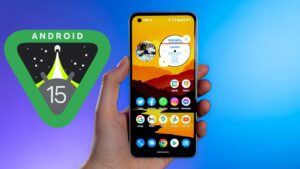Google Gemini:- In the ever-evolving world of artificial intelligence, competition among tech giants is fierce. Recently, Google made a significant move in this AI race by rebranding its Bard chatbot and Duet AI into Google Gemini, directly challenging Microsoft and its partners, OpenAI. But what led to this transformation, and what exactly is Google Gemini?
Content
What Changed with Bard? Meet Google Gemini!
The Bard chatbot, originally operating on the older PaLM (Pathways Language Model), received a major upgrade in December when Google transitioned it to Gemini Pro. However, in a recent development, approximately a year after its introduction following OpenAI’s ChatGPT, Google decided to retire Bard and launched Google Gemini. This rebranding coincided with the unveiling of Gemini Ultra, a premium edition of the chatbot harnessing Google’s cutting-edge large language model.
The shift from Bard to Gemini signifies Google’s commitment to advancing its AI offerings and staying competitive in the rapidly evolving field of artificial intelligence. With Gemini and its premium counterpart Ultra, Google aims to deliver enhanced functionalities and improved user experiences, catering to a diverse range of needs and preferences in the AI landscape.
What is Google Gemini and What Can It Do?
So, what exactly is Google Gemini, and what can it do? Essentially, Gemini serves as Google’s answer to ChatGPT, designed to handle a wide range of tasks similarly to its revolutionary counterpart. Google touts Gemini as multimodal, meaning it can process inputs in various formats—text, images, video, sound—and provide outputs in any of these formats.
To visit official website of Google Gemini:- Click Here
While demonstrations of Gemini’s capabilities may appear seamless and efficient in promotional materials, it’s important to recognize that some of this smoothness could be attributed to editing. Nevertheless, the chatbot’s abilities remain impressive, showcasing its potential to revolutionize interactions with AI.
Where you can access Gemini?
Presently, the Gemini large language model is available to users through Search Generative Experiences (SGE), which integrates its summarization abilities into the Google search platform. However, access to SGE remains restricted to a specific set of users who enrolled in the waitlist on Search Labs. Despite this limitation, Google’s recent announcement hints at forthcoming dedicated Gemini applications for Android and iOS devices.
This strategic move aims to expand Gemini’s accessibility, reaching a wider audience beyond the initial select group. By launching dedicated mobile apps, Google seeks to enhance user engagement and convenience, enabling a broader range of individuals to leverage Gemini’s capabilities across various platforms. This expansion underscores Google’s commitment to democratizing access to advanced AI technologies and further solidifies Gemini’s position in the competitive landscape of AI-driven applications.
What’s Gemini Advanced and How Does It Work?
Google also launched Gemini Advanced, a paid tier providing access to Ultra 1.0, its most powerful AI model. Positioned as a superior solution in blind evaluations, Gemini Advanced excels in complex tasks like coding, logical reasoning, and collaboration. It offers personalized tutoring and understands context from previous interactions, enhancing its effectiveness. This advanced tier caters to those seeking comprehensive AI assistance for diverse tasks, emphasizing its versatility and capabilities beyond standard chatbot functions.
Which One Better?
But how does Google Gemini stack up against OpenAI’s ChatGPT? According to a technical report by Google’s DeepMind, Gemini excels in various tests, outperforming ChatGPT on benchmarks like the MMLU (Massive Multitask Language Understanding). However, Gemini itself acknowledges that the “better” option depends on specific needs and preferences. While ChatGPT might be preferable for creative writing or casual conversation, Gemini shines in factual accuracy and complex tasks.
Ultimately, the question of which chatbot is superior boils down to individual requirements. Users are encouraged to test both systems with similar tasks to determine which better suits their needs. By repeating this process across various tasks, a clearer picture of each chatbot’s strengths and weaknesses can emerge.
In conclusion, Google Gemini’s emergence marks a significant development in the AI landscape, presenting a formidable competitor to OpenAI’s ChatGPT. With its advanced capabilities and multimodal functionality, Gemini aims to redefine how we interact with AI-driven assistants. As the competition intensifies, users stand to benefit from the ongoing innovation driving the AI race forward.
| Section | Internal Link |
|---|---|
| Tech | Click Here |
| Laptop | Click Here |
| Mobile | Click Here |
| Accessories | Click Here |


